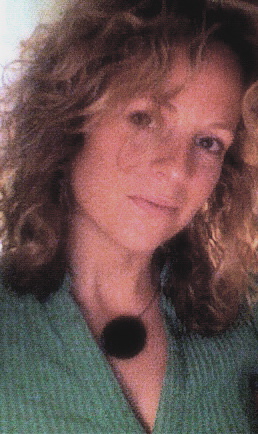Jules Gibbs
Gender is (usually) a biological fact, but I’m interested in how it’s also largely imagined, cultivated and imposed — that’s where poetry becomes a useful medium, as it allows us to tread into that unresolved, murky space that lingers in the body-politic. I find myself negotiating subjects and moods that are impacted by external forces and perceptions associated with the condition of being gendered; and in doing this, I often find myself associating readily with sensibilities that are outside my range of experience, and thus, it sometimes feels impossible (and unnecessary) to authenticate the claims I make (by way of writing the poem) to those associations. I’ve written about some subjects that feel deeply gendered — pregnancy, motherhood, losing a child — even though I’ve never experienced them. My sympathies are sometimes so mutable, my own boundaries (at least in the thought and the making of the poem), so fluid, that I could be faulted for a lack of stance. That’s completely untrue; my politics (unlike my poems) are non-negotiable. But poetry isn’t exactly the forum for the righteousness of absolutism; so if there’s a gender politic explored in the poems, it’s one of ambivalence and ambiguity. In the poem included here, the cross-dresser is not the primary occasion for the poem, but rather a tangential push against normative expectations of sexual love that’s rendered (I hope) in a way that allows the humanness to supercede other gender issues to which the reader might respond morally or aesthetically.
Good Damage
Four hundred years of illiteracy and each week
the Co-op circular still fills with complaints
and an overabundance of exclamations
signed by a lower-case communist mocking
the upper-case god, both of them poking a barrel fire
in the brain stem of the capitalist, debating the cost benefit
of the enterprise — someone must pay for the mislabeling
of the maple syrup — and other erroneous claims
about the true nature of vegan or sugar free.
Unforgivable too, at the end of another shift,
two carts overflowing with castoffs, the task
of restocking and disposing the crumb
and simulacrum of the day’s labor
divided into piles marked Good Damage and Bad
Damage — a judgment not so easily made
by an exhausted man in heels and a dress
who’s preoccupied with lusty thoughts
of an apartment to return to, someone to return with,
a closet where they can shut themselves in, kiss
and unzip, until, in the underground
economy of love, they get something
for nothing, give something back —
for nothing.
 Jules Gibbs picks up and moves about every three years, but she currently calls Syracuse, NY, her home. She likes teaching poetry to adults in non-traditional settings, and to children in all settings. Someone recently made a mistake and chose her work for inclusion in the anthology, Best New Poets, 2009. She's grateful for such errors.
Jules Gibbs picks up and moves about every three years, but she currently calls Syracuse, NY, her home. She likes teaching poetry to adults in non-traditional settings, and to children in all settings. Someone recently made a mistake and chose her work for inclusion in the anthology, Best New Poets, 2009. She's grateful for such errors.